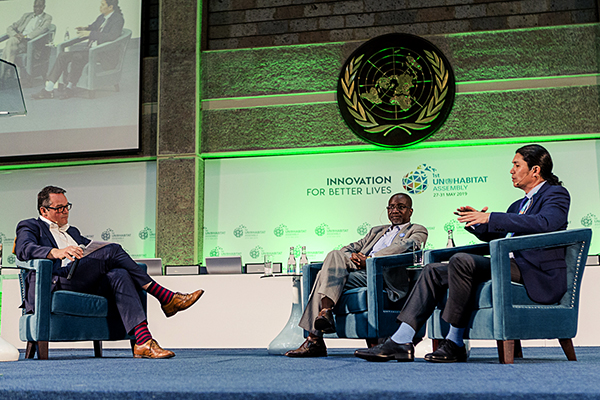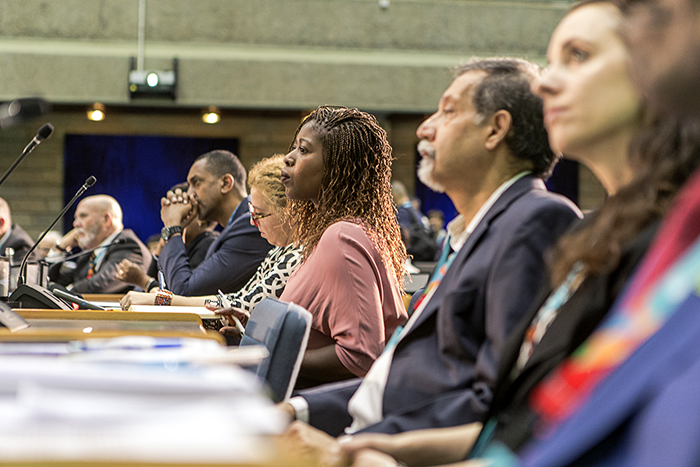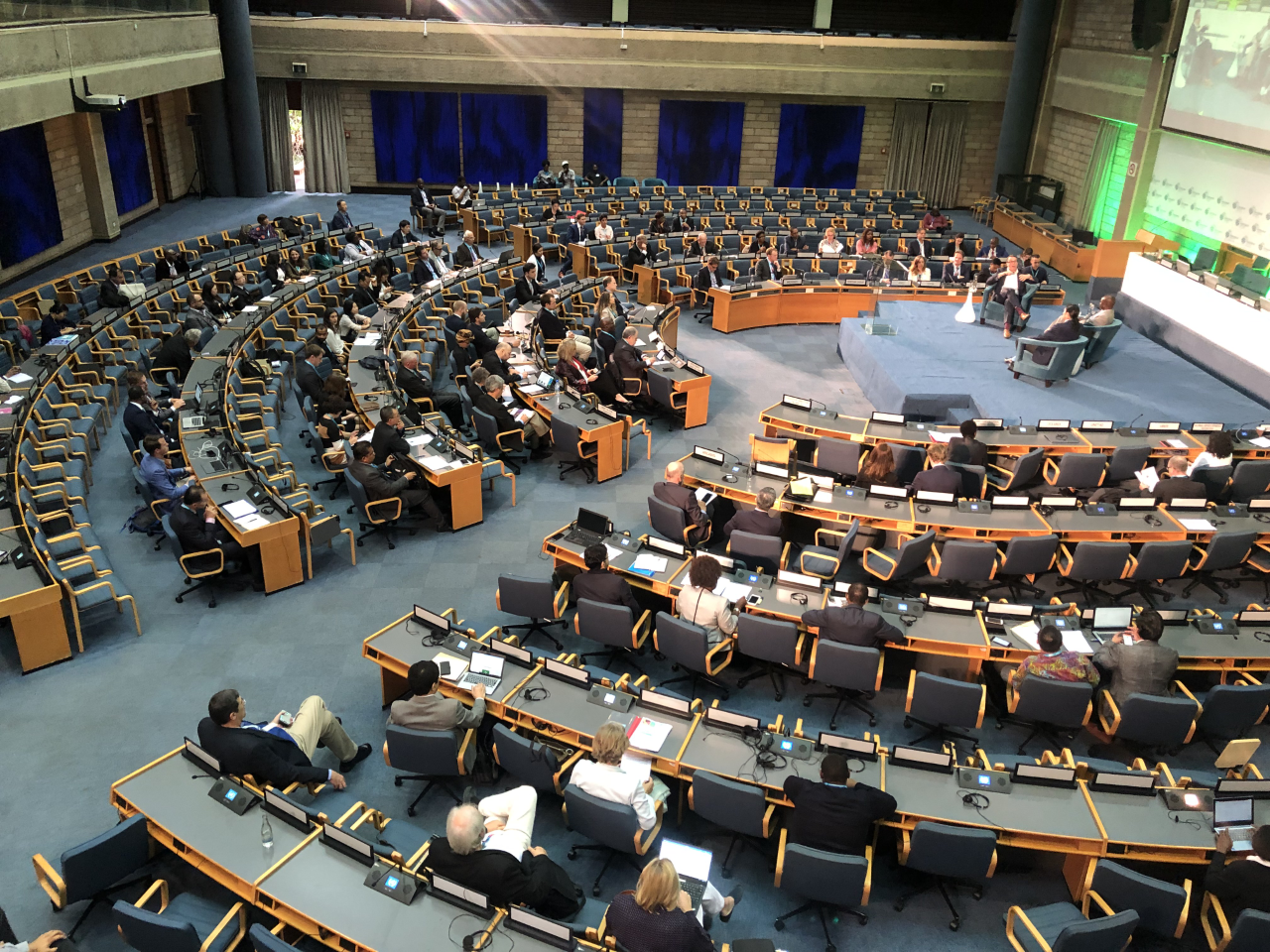mutual interest, mutual benefit and mutual value in what we are trying to do."
NAIROBI, 26 May 2019 - Around 50 business leaders from around the world congregated at the United Nations to discuss how industry can partner to create innovative, sustainable cities and communities.
The high-level Business Leaders Dialogue, hosted by UN-Habitat, looked at the advantages and opportunities of sustainable urban growth and development, and the proactive role that is played by the private sector in cities.
Opening the session, UN-Habitat Executive Director Ms. Maimunah Mohd Sharif, reflected on her time serving as Mayor of the city of Penang saying, “When I worked with businesses, not merely as investors in my city, but as partners, we saw transformation.” Ms. Sharif emphasized the need for similar work at UN-Habitat, to effectively broker partnerships and create environments for businesses to become development partners, “This way we can jointly realise the transformation that we need to see in cities and communities around the world,” she said.
In a Rapid Fire session Deputy Executive Director of UN-Habitat, Victor Kisob, echoed Ms. Sharif's sentiments, saying there is a “natural fit between business and UN-Habitat.” He noted, “At UN-Habitat we are open to partnering with the private sector. There is mutual interest, mutual benefit and mutual value in what we are trying to do.”

Kunlé Adeyemi, Founder and Partner of NLÉ Works, reflected that, “Cities are said to be man's greatest invention, but with the way they have been developed in the last 30 years they could also be humankind's most deadliest invention.” He added that humanity needs to, “think differently, build differently and create an environment where we learn to live differently.”
Many of the business leaders present were already collaborating with cities and local governments. Cezanne Maherali, Uber's Manager for Policy in East Africa, noted how Uber now takes “a very proactive approach with engaging with governments at the local and national level.” Marc Collins Chen, Co-Founder and Chief Executive Officer of Oceanix, described how in the past legislation was one of the challenges of partnering with cities and governments as “Innovators move faster than legislation,” but added with a sense of optimism that, “this gap is shrinking.”

UN-Habitat’s role in bringing businesses together with cities and urban stakeholders, and the organization's ability to support legal and planning frameworks for commerce, was noted by members of the business community as key to making cities better environments for business. Some business representatives felt that this, in turn, will generate local economies and jobs for cities.
Jim Donovan, Chief Executive Officer of ADEC Innovations commented that, “The power of the UN is convening power. Bringing governments and stakeholders to the table.” Reflecting on their interaction with UN-Habitat, Vincent Loubiere, Director of City Integration and Infrastructure development at Airbus Urban Mobility said, “For us the New Urban Agenda gives us hope for the future, to create new standards that are by design sustainable.
This Business Leaders Dialogue came the day before the five day UN-Habitat Assembly, that starts on 27 May 2019. With over 4,000 participants the first UN-Habitat Assembly will set out the framework for the future of our cities and towns. The theme for the Assembly is “Innovation for Better Quality of Life in Cities and Communities”.
